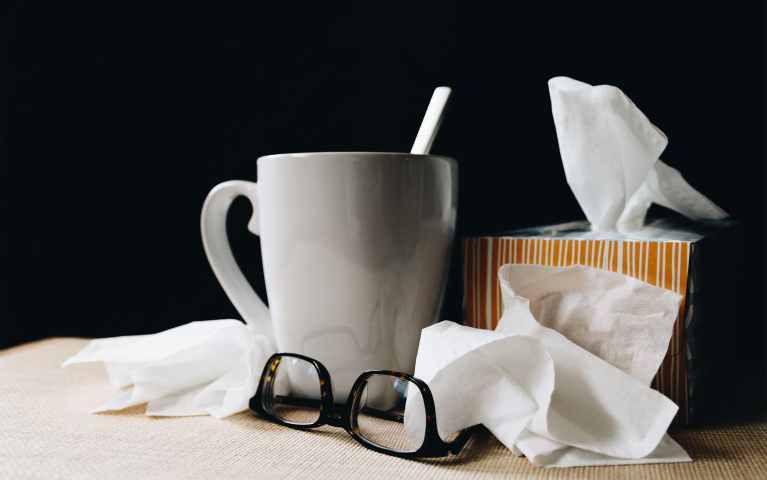It always feels like torture. Being sick when it's sunny and nice out. Just because it's summer doesn't mean you're immune to germs. How quality sleep can help you survive and possibly avoid the summer flu.
That achy, sneezing, coughing, feel-like-staying-in bed-forever feeling — no one likes coming down with the flu in summer, especially when you're burning up with fever while the temps are already scorching, and your family is hitting the pool and barbecuing your favorite ribs.
The contagious respiratory illness known as influenza hits prime time in fall and winter, as people spend more time indoors, in closer contact, and the flu thrives in colder, dryer months. But it's in circulation around the world at all times, according to the Centers for Disease Control. If you've been traveling, especially outside the country or somewhere much colder than where you live, the flu may still be lurking there.
You may also have a flu-like illness that is actually a virus, and not influenza.
Just like its winter cousin, the summer flu can take from three days to two weeks to get better, and you'll be contagious from a day before symptoms show to about 7 days after symptoms began, reports the CDC. Antiviral medications, when started within 48 hours of symptoms, can help reduce the longevity and severity. Plus, if you had the flu vaccine, it may prevent you from getting as sick as you would have without the shot.
Sleep: The Best Medicine?
Along with lots of fluids and your favorite chicken soup, sleep plays a major part in healing. In fact, it's why the body feels drowsy when illness strikes. Researchers say it's an example of nature on your side: Sleep helps fight infections, so you become sleepy when you get sick.
What's more, sleep enables the body to develop antibodies to fight fatigue, fever and runny nose — all the symptoms of your summer flu. In fact, increased sleep helps fight bacterial infections, says the journal Sleep.
Sleep is also when your immune system repairs itself by releasing certain disease-fighting hormones, proteins and chemicals. For example, researchers found people who were asleep had more immune fighting T-cells than people who were awake, reports a study in the Journal of Experimental Medicine.
Bottom line: Extra shut-eye during an illness can help you recover quicker.
Your Sleep-Scription for Summer Flu
It's no fun catching the flu during any season, but it seems particularly punishing when you should be at the beach with the sand between your toes. Instead, heed these bedrest musts so you'll be backstroking soon:
-
Prioritize sleep. Get as much quality sleep as possible. Go to sleep early, sleep in, take naps.
-
Prop up the head of the bed with pillows if breathing is problematic during sleep, or raise your FlexFit™ smart adjustable base.
-
Try a vaporizer or humidifier to moisten the air-conditioned air, so you can rest more comfortably.
-
Aim for deep, restorative sleep by limiting screens before bed, and skipping alcohol and caffeine after noon.
-
Rest is the ticket to recovery. Even activities like work can produce stress hormones, which disrupt the white blood cells needed to fight the summer flu.
Like diet and exercise, quality sleep is essential for optimal wellbeing and performance. Because everyone's sleep needs are different, Sleep Number® smart beds sense your movements and automatically adjust firmness, comfort and support to keep you both sleeping comfortably. Find your Sleep Number® setting for your best possible night's sleep, and if you own a Sleep Number® bed, log in to your Sleep Number® Rewards account to see your exclusive offers, refer friends and more.
